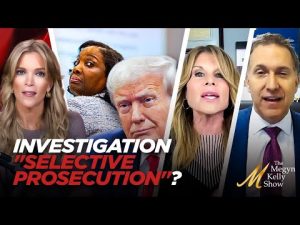In recent discussions regarding the rampant drug epidemic in America, retired U.S. Air Force Brigadier General Blaine Holtz and former acting DEA administrator Derek Maltz have expressed their concerns about the intricate connections between drug cartels and foreign governments, notably Venezuela. The situation is dire, and the implications extend far beyond just the streets of American towns. With the support of the Venezuelan government and organizations like Cartel Del Sol, drug trafficking is more than just illegal—it has become a matter of national security.
General Holtz articulated the need for a comprehensive approach to combat this issue, emphasizing that stopping drug runners calls for a united front that involves multiple branches of government. He pointed out the U.S. Navy’s strategic positioning off the Venezuelan coast, reinforcing that the problem isn’t isolated to one country. The evidence suggests that these cartels are deeply entrenched in global operations, affecting many nations. Holtz emphasized that the challenge encompasses more than just law enforcement; it demands military readiness and a commitment to defend American streets from the tide of illicit substances, particularly fentanyl, which alone claims over 70,000 lives annually—more than the losses suffered by American troops during the entirety of the Vietnam War.
Derek Maltz highlighted the heinous reality that many people, particularly youths experimenting with drugs, are unknowingly consuming lethal substances like fentanyl disguised as common medications. This deception leads to tragic outcomes time and again. The ongoing crisis has reached such alarming proportions that even infants are falling victim to the scourge of drug poisons coming from international sources, particularly Chinese labs. Maltz underscored that the cartels have cultivated a robust, profit-driven alliance with these foreign entities, leading to devastating consequences not only in the U.S. but globally.
Moreover, the Venezuelan government has been termed a “narco state” for nearly two decades, indicating a level of complicity in drug trafficking that raises eyebrows. With Cartel Del Sol being labeled as a terrorist organization by the U.S. Treasury, the tide seems to be turning against these nefarious operations. Although there is skepticism regarding the legitimacy of Venezuelan elections, it is evident that the nation’s leadership has a vested interest in maintaining these illegal enterprises. The need for action has never been more urgent, prompting calls from political figures like Florida Senator Rick Scott to escalate the bounty on Nicolas Maduro’s head to $100 million, a dramatic measure that underscores the gravity of the situation.
In Houston, recent drug seizures have highlighted the scale of the problem. Authorities apprehended a record amount of chemical drugs reportedly imported from China, intended for meth production in Mexico. Such operations, dubbed “Hydra,” suggest an increasingly organized and sophisticated network of drug trafficking that stretches from China to Latin America and ultimately into American communities. It is evident that President Trump is taking decisive actions against this crisis, aiming to protect American lives and dismantle the intricate webs of drug syndicates.
In conclusion, the fight against drug cartels and the powerful forces behind them requires a multifaceted strategy that leverages military strength, law enforcement, and international cooperation. The death toll from overdoses continues to climb, reminding all Americans that this is not just a policy issue—it’s a pressing humanitarian crisis. The public is left to wonder how far the government will go and what measures will be taken next in this relentless battle against drug trafficking and its devastating consequences. As the stakes rise, so does the need for collective action to thwart this growing threat to society.







